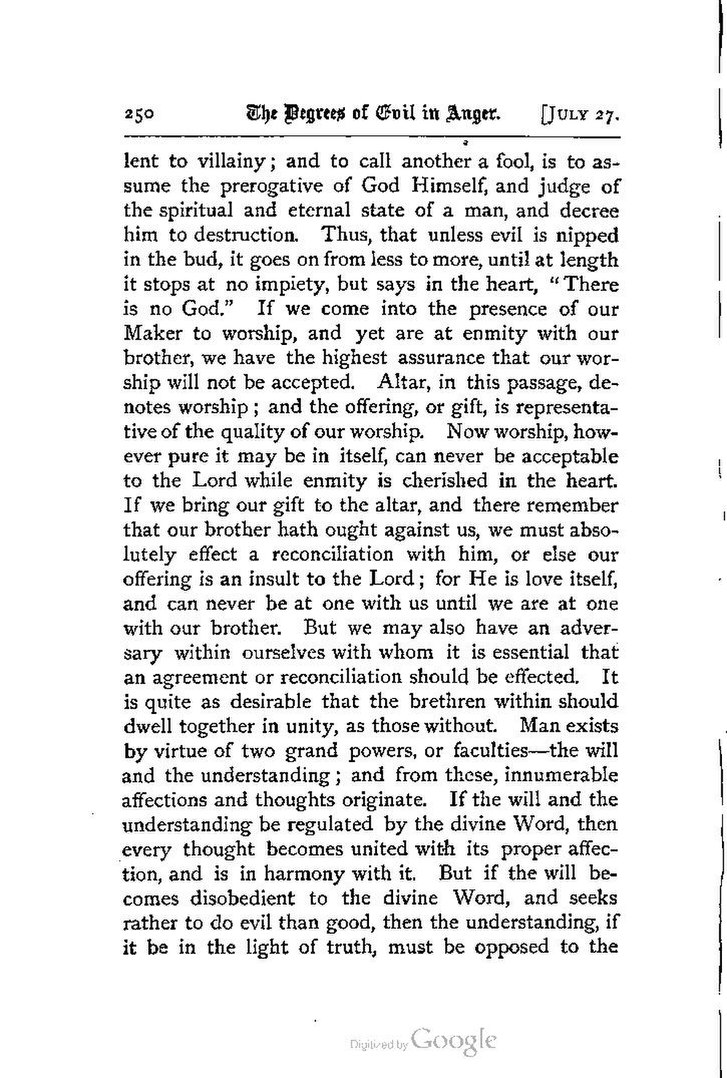lent to villainy; and to call another a fool, is to assume the prerogative of God Himself, and judge of the spiritual and eternal state of a man, and decree him to destruction. Thus, that unless evil is nipped in the bud, it goes on from less to more, until at length it stops at no impiety, but says in the heart, "There is no God." If we come into the presence of our Maker to worship, and yet are at enmity with our brother, we have the highest assurance that our worship will not be accepted. Altar, in this passage, denotes worship; and the offering, or gift, is representative of the quality of our worship. Now worship, however pure it may be in itself, can never be acceptable to the Lord while enmity is cherished in the heart. If we bring our gift to the altar, and there remember that our brother hath ought against us, we must absolutely effect a reconciliation with him, or else our offering is an insult to the Lord; for He is love itself, and can never be at one with us until we are at one with our brother. But we may also have an adversary within ourselves with whom it is essential that an agreement or reconciliation should be effected. It is quite as desirable that the brethren within should dwell together in unity, as those without. Man exists by virtue of two grand powers, or faculties—the will and the understanding; and from these, innumerable affections and thoughts originate. If the will and the understanding be regulated by the divine Word, then every thought becomes united with its proper affection, and is in harmony with it. But if the will becomes disobedient to the divine Word, and seeks rather to do evil than good, then the understanding, if it be in the light of truth, must be opposed to the
